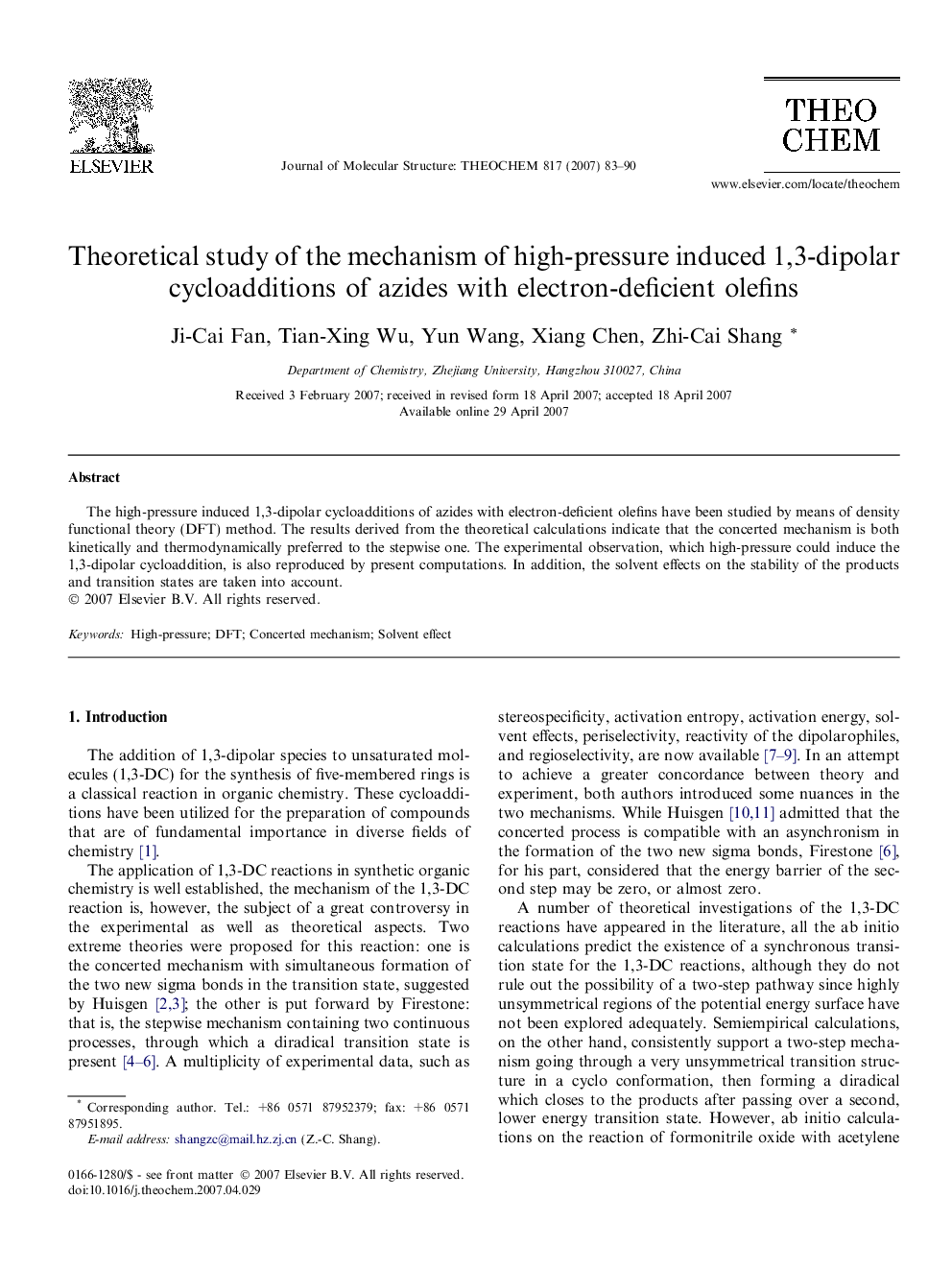| Article ID | Journal | Published Year | Pages | File Type |
|---|---|---|---|---|
| 5418398 | Journal of Molecular Structure: THEOCHEM | 2007 | 8 Pages |
Abstract
The high-pressure induced 1,3-dipolar cycloadditions of azides with electron-deficient olefins have been studied by means of density functional theory (DFT) method. The results derived from the theoretical calculations indicate that the concerted mechanism is both kinetically and thermodynamically preferred to the stepwise one. The experimental observation, which high-pressure could induce the 1,3-dipolar cycloaddition, is also reproduced by present computations. In addition, the solvent effects on the stability of the products and transition states are taken into account.
Related Topics
Physical Sciences and Engineering
Chemistry
Physical and Theoretical Chemistry
Authors
Ji-Cai Fan, Tian-Xing Wu, Yun Wang, Xiang Chen, Zhi-Cai Shang,
